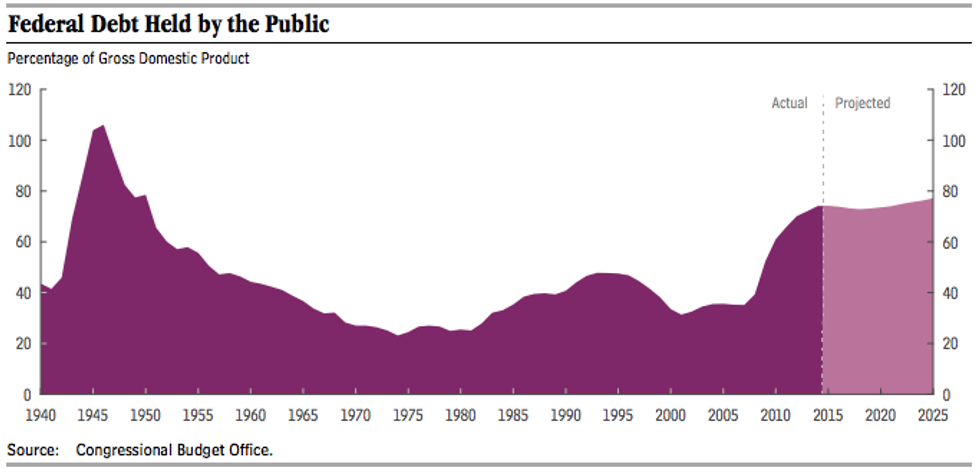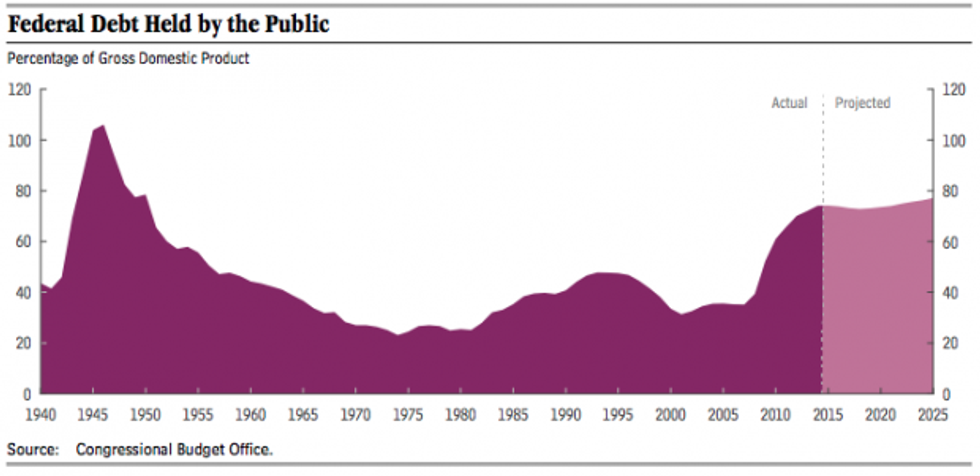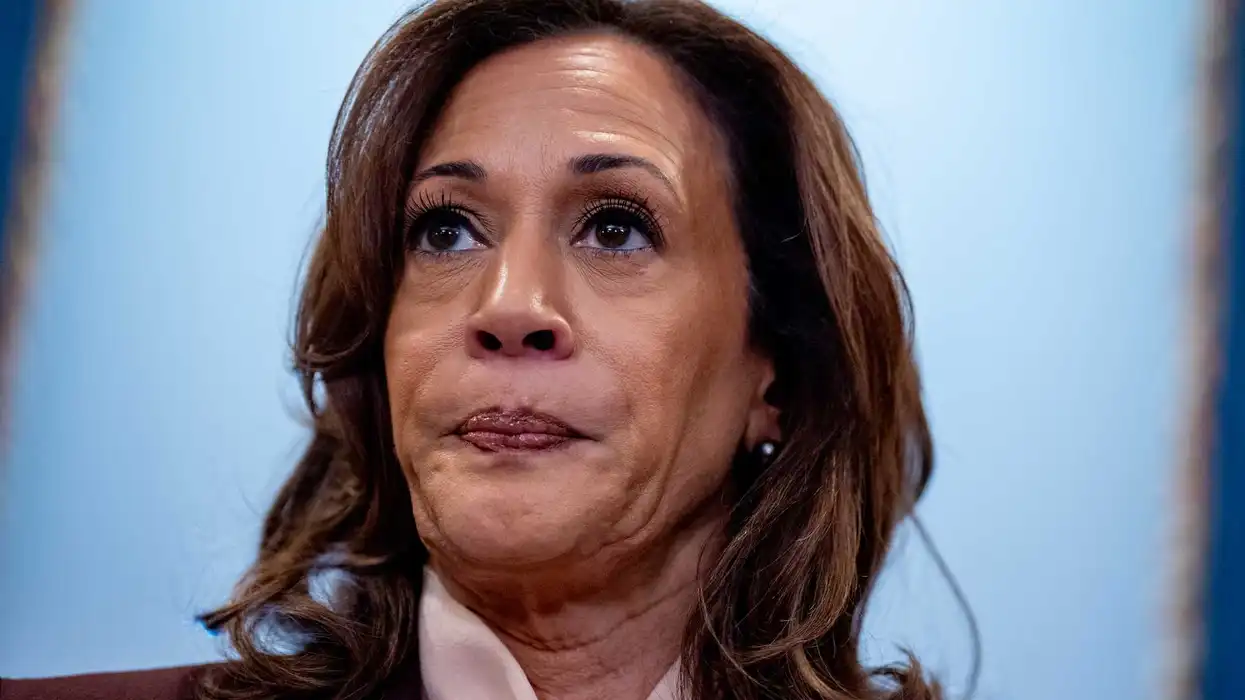
© 2025 Blaze Media LLC. All rights reserved.
The U.S. will add $7.2 trillion in debt over the next decade, and that's the good news
March 09, 2015
The Congressional Budget Office on Monday released a revised outlook that said the annual budget deficit will soar again to more than $1 trillion in 2025, a level not seen since the first four years of President Barack Obama's presidency.
If the CBO's projections hold, total debt incurred from 2016 to 2025 will be $7.2 trillion, and the total national debt by then will be equal to about 77 percent of U.S. gross domestic product.
CBO's report came with an updated warning about the rising and largely unchecked national debt.
"Such high and rising debt would have serious negative consequences for the nation: When interest rates returned to more typical, higher levels, federal spending on interest payments would increase substantially," CBO wrote. "Moreover, because federal borrowing reduces national saving over time, the nation’s capital stock would ultimately be smaller and productivity and total wages would be lower than they would be if the debt was smaller."
"In addition, lawmakers would have less flexibility than otherwise to use tax and spending policies to respond to unexpected challenges," CBO added. "Finally, a large debt increases the risk of a fiscal crisis, during which investors would lose so much confidence in the government's ability to manage its budget that the government would be unable to borrow at affordable rates."
Despite the doom and gloom in the CBO's report, it actually represented an improvement compared to the last estimate released in January. The January report said total new debt through 2025 would be about $7.6 trillion — the March update is about $400 billion less.
CBO said that reduction mostly reflects a downward revision in the projected growth of health care premiums. It said private companies spent less on health care in 2013 than the year before, and that if this trend continues, that means more government revenues from income and payroll taxes, and fewer subsidies paid out under Obamacare.
Democrats have said Obamacare itself is the reason why health care costs are declining, but Republicans have dismissed this and said the law is leading to other indirect costs, such as possible tax penalties and the taking on of more national debt.
The GOP has also cited more administrative costs — just last week, the IRS said it needed a half billion dollars in 2016 alone just to implement the law.
Want to leave a tip?
We answer to you. Help keep our content free of advertisers and big tech censorship by leaving a tip today.
Want to join the conversation?
Already a subscriber?
more stories
Sign up for the Blaze newsletter
By signing up, you agree to our Privacy Policy and Terms of Use, and agree to receive content that may sometimes include advertisements. You may opt out at any time.
Related Content
© 2025 Blaze Media LLC. All rights reserved.
Get the stories that matter most delivered directly to your inbox.
By signing up, you agree to our Privacy Policy and Terms of Use, and agree to receive content that may sometimes include advertisements. You may opt out at any time.







